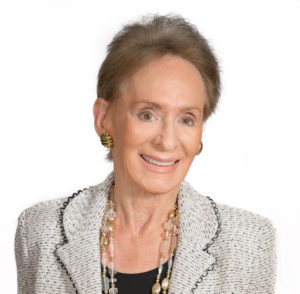

The cover of the October 2017 Life Extension magazine boldly declares, “Sugar is Not Fit For Human Consumption.” It is common to find studies done by researchers that say pretty much the same thing but in more politically correct language. For example, this month I found “Scientists reveal the relationship between sugar, cancer” and “Too much sugar? Even ‘healthy people’ are at risk of developing heart disease”
The more you learn about the deleterious effects of refined sugar on the human body, the more you understand the importance of supporting evidence found in respected research. The sad thing is, research findings are not exposed by the mass media, so far too few of us understand (or want to believe) the damaging effects of sugar on the body.
We sort of know we should cut down or better yet, cut out refined carbs from our diet. But we don’t. Why not? Primarily because it’s difficult. But worse, we have been conditioned through tradition, advertising and ignorance of the medical profession to accept that just about anything in the name of “food” can be ingested without harm. Here are some culprits that aid and abet the problem:
Tradition: Toddlers are given Sugar Puffs (or similar) as finger food. (The start of the sugar addiction.) It’s tradition to drink a sugary soft drink with a meal in place of water.
Advertising: Relentless slick print, Internet and TV ads hawking every kind of high carb edible masquerading as nutritious food.
Ignorance of the health care industry. Health care professionals often don’t know enough to make a connection between diet and its effect on health primarily because nutrition education in medical schools is all but non-existent.
Why Medical Doctors Don’t Know About Nutrition
A survey devised by authors of the Nutrition in Medicine Project at the University of North Carolina at Chapel Hill was distributed to all 127 accredited U.S. medical schools. From August 2008 through July 2009, the authors asked their contacts, most of whom were nutrition educators, to report the nutrition hours required for their medical students and whether those hours of nutrition education occurred in a designated nutrition course, within another course, or during clinical rotations.
Respondents from 86% of the targeted medical schools completed some part of the survey. Most schools (103/109) required some form of nutrition education. Of the 105 schools answering questions about courses and contact hours, only 25% required a dedicated nutrition course; while in 2004, 30% of 106 schools did. Overall, medical students received 19.6 contact hours of nutrition instruction during their medical school careers (range: 0-70 hours); the average in 2004 was 22.3 hours. Only 27% of the 105 schools met the minimum 25 required hours set by the National Academy of Sciences; while in 2004, 38% of 104 schools did so.
The study results concluded that the amount of nutrition education medical students receive continues to be inadequate.
Less than 20 hours of nutrition training during the course of a medical education? That’s insane. It’s as if what we put into our bodies day in and day out over a lifetime has no effect on our health. Surely, one does not need a college education to understand that belief can’t be true.
So, what are medical students learning about?
Medical students ARE given all the latest information about drugs developed by the pharmaceutical industry.
It goes like this: students in medical schools, while being taught next to nothing about nutrition learn all that needs to be known about drugs to provide “health care”. Usually unknown to unsuspecting patients (and doctors) are possible undesirable and often, horrendous (even deadly) side effects of drugs yet to be discovered, sometimes many years later.
Once armed with a medical degree and employed by a hospital, HMO or in private practice, and equipped with knowledge of the “health care” benefits of drugs they learned about in medical school, doctors become part of the pharmaceutical industry’s medication distribution chain. Pharmaceutical companies constantly send sales reps to doctors offices to keep the doctor up to date on the latest and greatest drugs. Doctors are rewarded with “sample” packets of medication to be distributed to low income patients or as a “starter” amount for patients to take until prescriptions can be filled by a pharmacy.
And let’s not forget the pharmacist’s role in the scam. Pharmacy used to be an honorable profession in which pharmacists were trained to dispense natural remedies, prescribed by doctors trained in the benefits of natural remedies. That’s gone — all of it. Pharmacy students, like medical students, are now trained to be part of the distribution chain for the drug manufacturing industry.
Do you think I’m angry? You bet I am. Real health care provided by a nutrition oriented professional such as a naturopath is usually not covered by insurance and is expensive. Unfortunately most people can’t afford it. But we can help ourselves by learning about health-supporting nutrition. We can separate ourselves from the “group think” that has been telling us it’s okay to eat all the sugar and nutritionally useless junk we consume over a lifetime that is making us sick.
If you have health issues it is your responsibility to do what you can to help yourself by learning about a better way to eat and live. Plenty of reliable information is available, but it takes interest and determination to find and put that information to good use for your personal benefit.
The in-your-face statement on the cover of Life Extension magazine about sugar not being fit for human consumption is not extreme. It needs to be taken seriously.

Read all your monthly articles, but don’t always tell you. I enjoy greatly as usual. Enjoyed your daughter’s article this week. Have a great Thanksgiving!